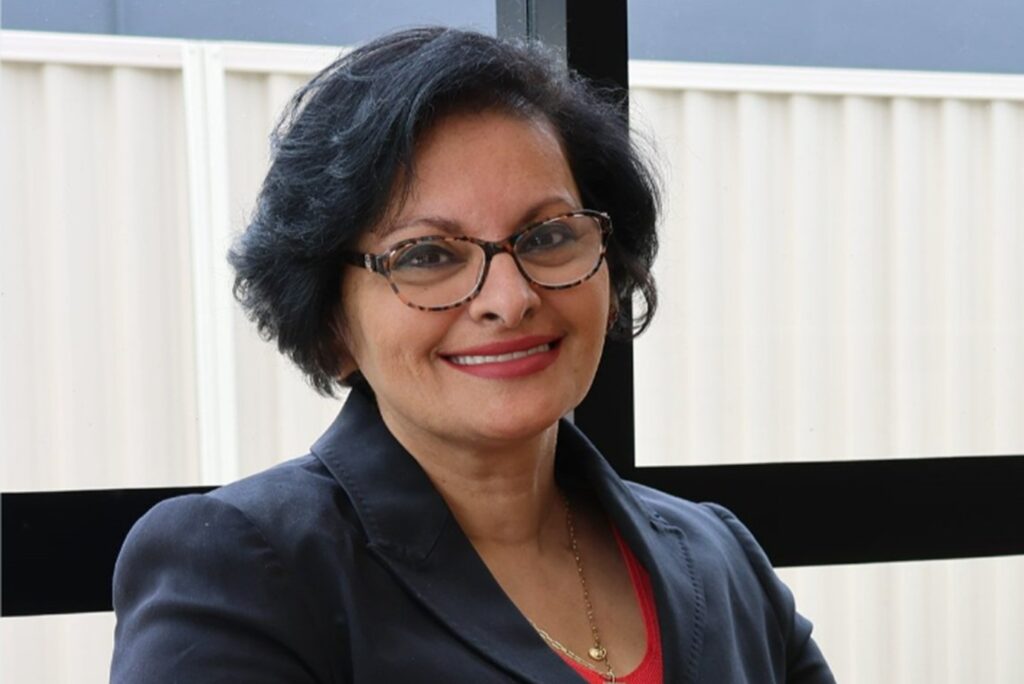Dr Talat Uppal is a gynaecologist and Director of Women’s Health Road in Sydney. Women’s Health Road is a new kind of women’s health practice that brings multiple, commonplace women’s health needs into one space, bringing the needs of women to the fore.
She’s also the visionary behind Australia’s first Abnormal Uterine Bleeding Hub and CEO of Bleed Better, a charity based initiative, which helped to coordinate the world’s first International Heavy Menstrual Bleeding Day this year, on May 11. The day aims to bring awareness to the issue of heavy menstrual bleeding and dismantle menstrual stigma by enhancing their quality live through better management.
In the Q&A below, Dr Uppal says she’d like more women to know that heavy menstrual bleeding is not something that they should have to simply endure. It’s a condition that affects one in four women of reproductive age and can be treated effectively with various options.
Dr Uppal will appear as a speaker at the 2024 Women’s Health and Wellbeing Summit, hosted by Women’s Agenda in Sydney on September 4. She shares more about her work and vision for women’s health below.
What’s one key thing you’re working on right now that you’re really excited about?
I’m thrilled to be working on developing a streamlined digital technology-based patient pathway for women with abnormal uterine bleeding. This project is designed to enhance patient education and menstrual literacy, making the patient journey smoother and better streamlined.
Our goal is to empower women with informed consent and shared decision-making, ensuring they receive the best possible care and support when navigating the health journey that involves abnormal bleeding.
Can you share a key thing you regularly do (or aspire to do more) that really supports your personal wellbeing?
To support my personal wellbeing, I regularly engage in Punjabi bhangra dancing. This high-energy folk dance, traditionally performed at harvest time to welcome the new season, is not only a fantastic workout but also a wonderful way to connect with my cultural roots and Southeast Asian community. Dancing brings me immense joy and helps me maintain a balanced, healthy lifestyle. Additionally, I find solace in daily dog walks, which keep me grounded and focused amid a busy schedule.
What do you want more women to know about their health?
I want more women to know that they should be proactive about their health and wellbeing. Understanding and recognising the signs and symptoms of common health issues, including menstrual disorders, and seeking timely medical advice is crucial. Women should feel empowered to advocate for themselves in healthcare settings and not dismiss their symptoms as “normal” if something feels wrong. Education and awareness are key to achieving better health outcomes.
Why are you so passionate about women’s menstrual health?
I’m passionate about women’s menstrual health because it’s a fundamental aspect of overall well-being that is often overlooked or stigmatised. Menstrual health issues can significantly impact a woman’s quality of life, productivity, and emotional well-being.
By focusing on this area, I hope together we can break down the stigma, improve access to care, and ensure that women receive the correct support and timely treatment they need.
This passion is driven by a commitment to gender equality and the belief that all women deserve to live healthy, empowered lives.
What is one thing you wish more women knew about heavy menstrual bleeding?
I wish more women knew that heavy menstrual bleeding is not something they have to simply endure. It is a common condition that affects 25 per cent of reproductive-aged women and can be treated effectively with various options, including medical, surgical, and radiological interventions.
Many women suffer in silence, thinking their heavy periods are normal, when some of them may have underlying pathology, such as uterine polyps, fibroids, adenomyosis, hormonal imbalances, or other medical conditions. The resulting iron deficiency and/ anaemia can cause significant fatigue. Seeking timely medical advice and accessing one of the many treatment options can lead to significant improvements in their quality of life.
Bleed Better is a charity-based initiative, and the annual International Heavy Menstrual Bleeding Day on 11th May annually raises awareness of this common condition.
Get tickets and find out more about the 2024 Women’s Health and Wellbeing Summit here.


